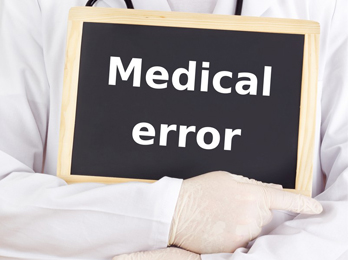Medication errors kill thousands of people every year in the United States, and victims are often patients who receive the wrong medication, medicines they are allergic to, incorrect dosage, or a combination of drugs that may have adverse effects. Victims also include patients whose particular health problems are not given due consideration. The sad fact is that most of these errors can be avoided. If physicians are more careful to write legibly, ensure that the prescriptions are correct, and are more cautious about drugs with similar sounding names, around 90% of these errors will not occur. Injury and death resulting from medical errors lead to medical malpractice cases. The patient or his/her family can file a medical malpractice suit against the doctor, nurse, pharmacist or any other healthcare professional responsible for the injury/death. In a medical malpractice case, the medical records of the patient are reviewed for merit and causation. Since this is a complicated and tedious process with the documents differing from one medical practice/facility to another, lawyers usually seek reliable medical review services for the same. The advantage of tying up with such providers is that they will take care of the very important processes such as medical record organization, medical case chronology and medical case summary preparation.
Here are details of a study that highlights the alarming statistics of medical mistakes at a typical U.S. hospital. A study of more than 275 operations at MGH (Massachusetts General Hospital) from November 2013 to June 2014 conducted to find out the frequency of adverse drug events and medication errors during the peri-operative period (immediately before, during and immediately after a surgical procedure) has found that some kind of mistake or adverse event occurred in every second surgery and in 5% of observed drug administrations. The study will be published in Anesthesiology, the official journal of the American Society of Anesthesiologists. Alarmingly, a third of these errors also led to adverse drug events/harm to the patients. Sadly, almost 80% of these events were preventable. The concern is that whether this situation is representative of other U.S. hospitals as well. According to the lead study author, considering the fact that Massachusetts General Hospital is a national leader in patient safety and has implemented approaches to enhance safety in the operating room, medical errors are likely to be as high at many other hospitals. The study infers that even though MGH utilizes electronic documentation and bar-coded syringe labeling systems, rapidly changing patient conditions in the OR do not provide enough time to enable the double and triple checking that occurs elsewhere in healthcare.
- The results of the study show that errors in labeling, dosage administered, failure to treat problems signified by vital signs and documentation led to these medical errors.
- Among the adverse events that occurred, 30% were considered significant, 4% were prevented by OR staff before they affected the patients, and 69% were considered serious and less than 2% were life threatening. Fortunately, none were fatal.
- These adverse events were more common in longer surgical procedures (those that extended to more than 6 hours and involved 13 or more medication administrations.)
- Regardless of the provider being an anesthesiologist, nurse anesthetist, or resident, the error rate was the same.
Studies such as this are important because:
- They act as eye-openers regarding the gravity of the medical errors that are being made and their incidence.
- They will help healthcare facilities develop focused strategies to prevent such errors and adverse patient events.
- They will also encourage hospitals and other healthcare providers to design more comprehensive decision support to further reduce the incidence of medical mistakes in the peri-operative setting.




